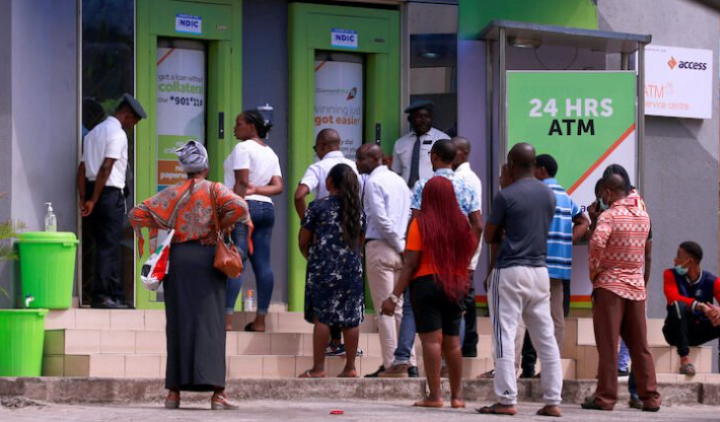image: REUTERS/Afolabi Sotunde
Nigerian banks have issued directives mandating workers to get vaccinated against COVID-19, TheCable understands.
In circulars seen by TheCable, six financial institutions directed their workers to go for vaccination or conduct COVID-19 tests on a bi-weekly basis at personal cost.
Last week, the federal government mandated civil servants to get vaccinated against COVID-19.
Boss Mustapha, secretary to the government of the federation (SGF), said unvaccinated workers would be barred from entering their places of work from December 1, 2021.
Advertisement
Mustapha is also the chairman of the presidential steering committee (PSC) on COVID-19.
“You are required to obtain a COVID-19 test on a bi-weekly basis and submit at their zonal offices or headquarters,” one of the circulars read.
The staff of Polaris, Access, Zenith, Union, Eco, and GT banks confirmed the latest development on Thursday.
Advertisement
They confirmed that they were given two options; get a COVID vaccine jab or present negative coronavirus test results every two weeks.
“Those are the options. If you are not taking the vaccine, then you’ll have to show your test result every two weeks,” an Access bank staff said.
“Without this, they said a staff will not be able to enter into the banking hall.”
Another bank staff at Polaris said the options sound lenient but indirectly mandated compulsory COVID-19 vaccination.
Advertisement
“It is annoying that they have to mandate us. How much is our salary that someone will be conducting a COVID test every two weeks? A COVID test costs about N50,000,” she said.
Two bankers at Ecobank also confirmed the development but declined to speak further on the matter.
Osita Nwanisobi, CBN’s spokesperson, did not reply to enquiries seeking comment on the compulsory COVID-19 vaccine adoption by the banks.
Since February 2020, Nigeria has recorded more than 200,000 cases and almost 3,000 deaths across 36 states and the federal capital territory.
Advertisement
While the federal government has mandated vaccination for workers, state governments are also planning to make it compulsory. With this, more banks and corporate entities may issue directives to their workers on measures to prevent the spread of coronavirus.
Advertisement
Add a comment






